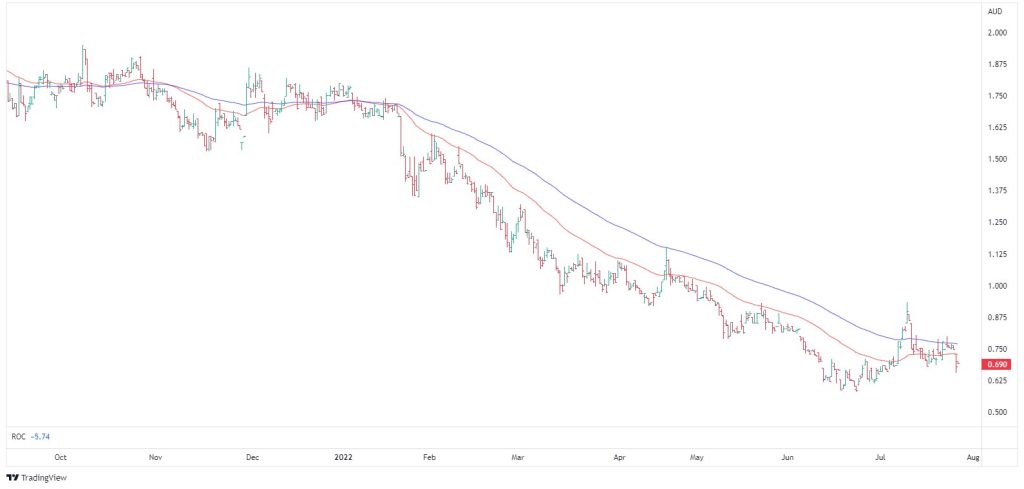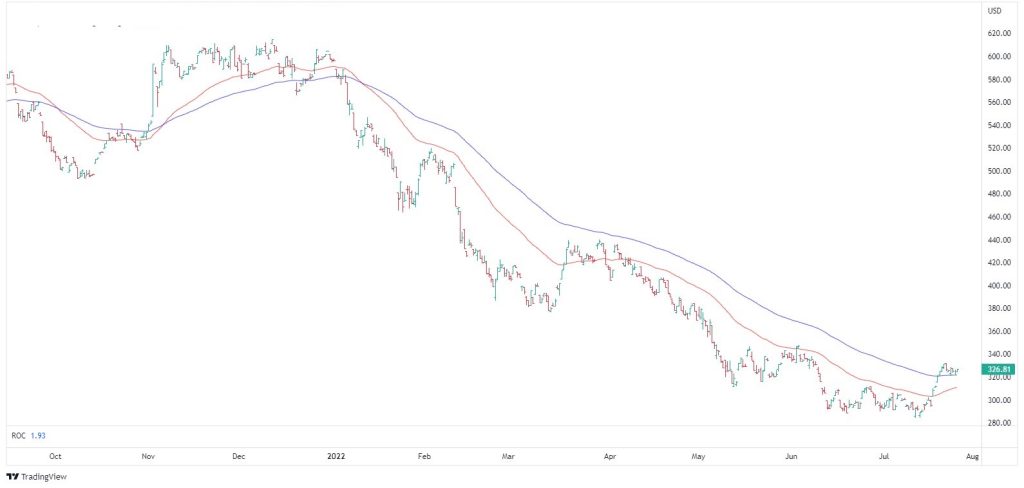Why High Conviction Investing is Dangerous

By Jason McIntosh | Published 27 July 2022
I’m going to discuss an article I recently saw about high conviction investing. It appeared on the popular Livewire investment site, and it looked at a series of high conviction calls that fund managers made at the beginning of the year.
The title of the article was: How the #1 Picks Went from Hero to Zero in Just 6 Months.
Now this post isn’t about talking anyone down. Successful investing isn’t easy, and it’s especially difficult when you’re asked to make a prediction 12 months into the future. A lot can change over… let alone over a year. And I believe it’s important to be able to adapt to changing circumstances and not have rigid views. This is something I’m always telling my Motion Trader members… it’s okay to get things wrong. And that’s why I use stop losses, and that’s why I say it’s worth taking small losses and walking away.
What I want to highlight here is the danger of high conviction. You see, high conviction often involves ego. And when ego comes into the picture, it can be harder to walk away when it’s not working.
Here’s an excerpt from the article:
“While 2 of our 18 fund managers have sold out of their top stocks for 2022, the remaining 16 stock pickers are adamant that their highest-conviction calls remain compelling over the months (and years) to come.”
From my perspective, and I know it’s shared by a lot of highly successful traders, the market doesn’t care what we are adamant about. Many people think the number one rule of investing is to make money.
But that’s not right. Making money is rule #2.
The first rule of investing is to protect your capital, and that means accepting when you’re wrong.
I think one of the most dangerous things you can do is to argue with the market. That’s why I use stop losses, and that’s why I use stop losses for my Motion Trader service. I want to protect capital when an idea isn’t working.
Let’s look at a couple of stocks from the article.
I’ll start by saying that it’s not all bad. Some of the stocks in the article look interesting. But others are a disaster. I’m just going to go through a couple of the disasters to highlight the danger of steadfastly maintaining high conviction.
One of the stocks is Raiz Invest (ASX:RZI).
Here’s the chart:

This stock also appeared in my Motion Trader service. There was a buy signal in August 2021. The moving averages were positive, and the price was breaking higher. But as a lot of stocks do, it lost momentum and it fell back, Motion Trader then cut the loss in January 2022. The exit was clinical, clear-cut, and didn’t involve ego. The trade resulted in a relatively small loss of capital.
But that’s not how the fund manager in the article is handling the situation. Rather than moving onto the next opportunity, he’s arguing with the market. He backed Raiz as being one of his top picks at the start of the year, and it’s now down by as much as 65%.
From my perspective, the market is saying that being long is wrong. The market has clearly signalled it was time to move on. The moving averages have turned lower, and the trend is down. As I often tell me Motion Trader members, the bad stuff happens below the moving averages, and that’s certainly been the case with Raiz.
But this fund manager is arguing that there’s a disconnect. He’s essentially saying that the market doesn’t get it, and he remains fully invested. Maybe it’ll work out, maybe it won’t. But I think fighting the market like this is a sure way to lose capital over time. Because as I said, the market doesn’t care what you think.
Now, another stock we’ll have a look at is a U.S.-listed one, Zebra Technologies (NYSE:ZBRA).
Let’s look at the chart:

The stock has fallen since January, when the call is presumably made. And that’s okay. No one gets everything right. That’s we I use an exit stop. Get out of what’s not working and move on. In the case of Zebra, the moving averages had turned lower, and as I say, the bad stuff generally happens below the moving averages. And that’s what been happening.
After a big fall, I believe you need to ask why you’re still holding a stock. It’s trending lower. It’s breaking down. It’s costing money. Why are you still holding? Zebra is a capital-destroying stock, but the manager argues that he really likes it, and he’s been averaging down as the stock’s been falling.
I don’t mean to criticise anyone’s approaches, and I’m just talking about trading process generally. But the risk with averaging down is that you never know how far a losing stock is going to fall, and how long it will take to recover, or even if it’s going to recover.
I believe that averaging down is a dangerous strategy. It’s great when you’re right, but what if you’re wrong? I think it all comes down to risk management. Protecting your capital is so important because once your capital is gone, you can’t play the game. You need your capital to stay in there.
The thing to remember is that you can always buy back in if the situation improves. I believe it’s better to be flexible when investing and adapt to the conditions. High conviction may sound good. But it often leads to an unwillingness to concede defeat. This can be disastrous in the stock market.
Looking for the best ASX stocks to buy now?
Motion Trader‘s algorithms scan more than 2,000 ASX stocks daily in search of medium term investment trends. We then tell our members precisely when to buy shares. And most importantly, we tell them when to sell.
Try a no obligation FREE 14-day trial of Motion Trader, and see what an algorithmic trading approach could do for you.

Jason McIntosh | Founder, Motion Trader
Jason’s professional trading career began over 3 decades ago. He’s a founder of two stock advisory firms, a listed funds management business, and has helped thousands of investors navigate the stock market. Click here to read Jason’s incredible story of, at age 20, sitting alongside some of the world’s greatest traders (and the life changing experience that came with that).

